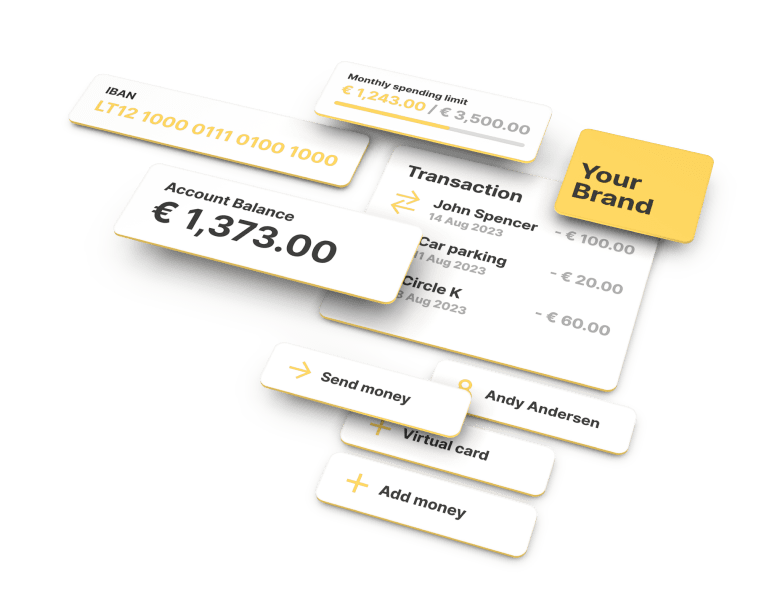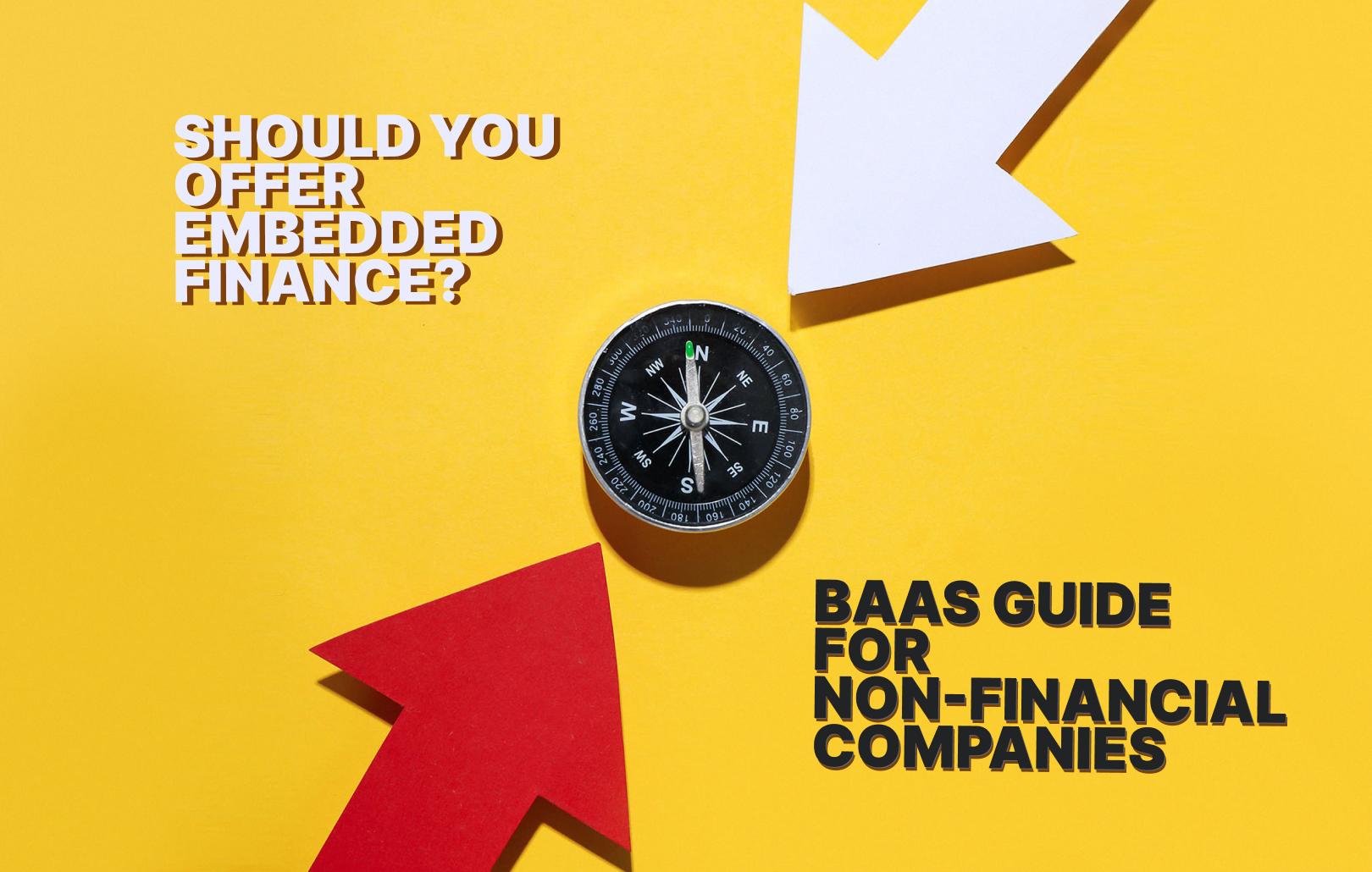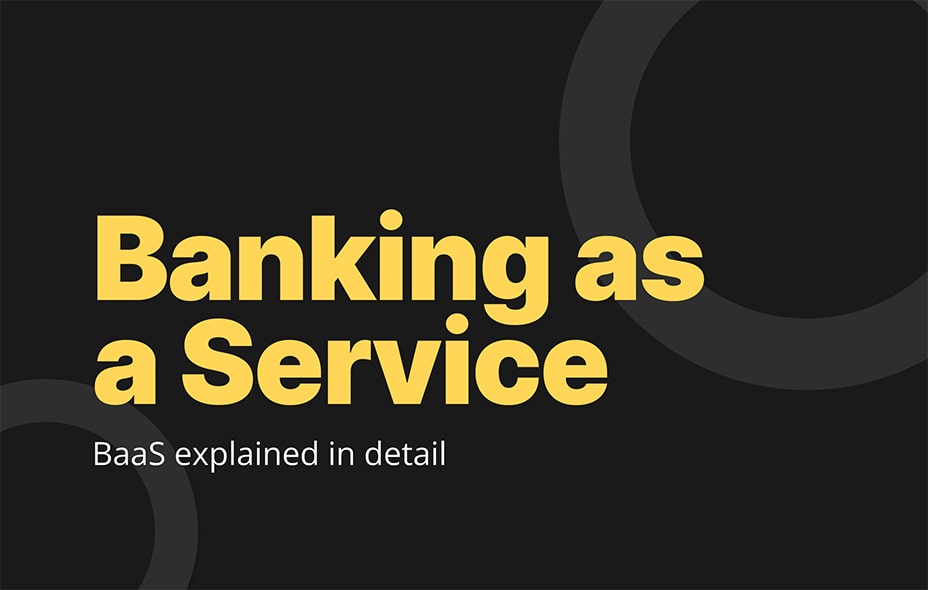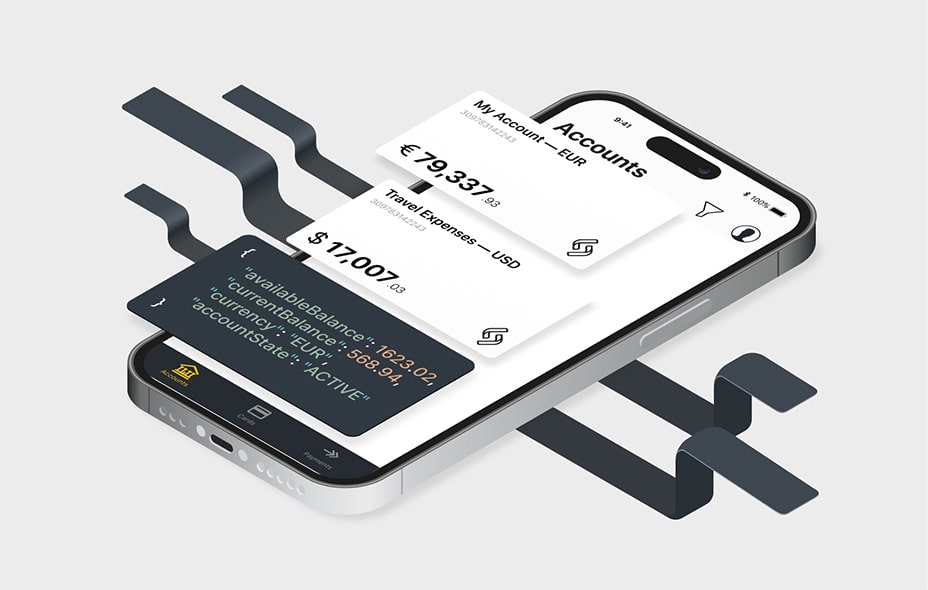The Most Successful BaaS Projects in the Financial Landscape

Over the past decade, Banking-as-a-Service (BaaS) has emerged as an undeniable force shaping the global banking landscape. Its ascent continues, driven by the adoption of innovative technologies like APIs. BaaS / White Label banking encompasses a comprehensive banking ecosystem that serves a dual purpose, revolutionizing how financial services are accessed and delivered.
- Empowering non-licensed entities such as digital platforms and specialized licensed firms like neobanks to seamlessly integrate financial products like current accounts, SME payments, and corporate loans into their offering
- Equipping traditional banks with novel distribution channels to access untapped customer segments while expediting their digital transformations.
Customers get easy access to banking. In short, BaaS is reshaping banking worldwide, offering a new way for people and businesses to meet financial needs.
Most Successful BaaS Projects
The potential of White Label digital banking has manifested in an array of notable projects that have transformed industries, making financial services more accessible and integrated into daily life. Some prominent examples include:
- BigTech: BaaS enabling Paraffin to empower Amazon and Goldman Sachs to partner with Apple, propelling financial services into the heart of BigTech.
- E-commerce: ebay‘s partnership with YouLend, and Bukalapak‘s collaboration with Standard Chartered, showcasing how BaaS enhances e-commerce financial offerings.
- Telecom: Telefonica‘s collaboration with BBVA, merging telecommunication and financial services to create a seamless experience.
- Travel: Green Dot’s collaboration with Uber and ChargeAfter’s partnership with Fly Now Pay Later, illustrating how BaaS redefines financial solutions for the travel industry.
- Automotive: Stripe’s alliance with BMW and Toyota, showcasing BaaS’s role in reshaping the automotive industry’s financial landscape.
- Retail: BaaS enabling Swan to collaborate with Carrefour and SEB’s partnership with Axel Johnson, underscoring how White-label banking is revitalizing retail financial services.
These BaaS projects stand as a testament to the transformative power of BaaS, illustrating its potential to create innovative, cross-industry collaborations that redefine the way financial services are delivered and experienced. As BaaS continues to unfold, it paves the way for more such partnerships, revolutionizing industries by seamlessly integrating financial functionalities into the fabric of daily life.
Why BaaS is Thriving: Key Factors
The growth of Banking-as-a-Service across the UK and Europe is no accident. Traditional banks are embracing BaaS for growth and innovation, leveraging their experience to meet the demand for digital finance.
Diverse BaaS Horizons: BaaS is reaching beyond its initial scope of payments, extending its capabilities to offer a range of APIs encompassing identity verification, loan origination, digital wallets, budgeting tools, and investment platforms. This expansion isn’t limited to consumers alone. BaaS is tailoring digital financial services to meet the specific needs of small businesses, including solutions like Buy Now, Pay Later (BNPL), earned-wage access, corporate cards, working capital provisions, and supply chain financing.
Regulatory Vigilance: With the rapid adoption of BaaS platforms across Europe, regulatory bodies are heightening their vigilance to safeguard the financial system from potential risks. In response, regulators in the UK, Germany, Lithuania, and beyond are strengthening oversight and implementing more stringent regulations. These measures are designed to mitigate threats such as money laundering, fraud, and potential financial instability, ensuring the integrity and stability of the financial ecosystem.
Market Transformation: A significant shift is anticipated in the BaaS sector across the UK and Europe as providers gear up for market consolidation. This trend is primarily driven by intensified competition, regulatory pressures, and the need to offer an extended range of services. As providers scale their operations and expand their customer bases, they’re positioning themselves to thrive within the evolving financial landscape.
Unified Financial Ecosystems: The ascent of BaaS is fostering a shift towards collaborative ecosystems within the financial sector. Fintech startups, digital platforms, conventional banks, technology enterprises, and regulatory authorities are recognizing the value of working together to reshape the entire spectrum of financial product design, development, distribution, and support. This collective effort is driving innovation and creating a more comprehensive suite of offerings to meet the evolving needs of customers and clients.
Unleashing Market Opportunities with BaaS
The rise of Banking-as-a-Service (BaaS) has introduced a transformative wave within the financial industry, uncovering two compelling market avenues that hold immense potential for growth and innovation.
- Embedded Finance: Bridging Gaps in Customer Journeys. Embedded Finance has emerged as a pivotal trend, signifying the integration of financial services into the fabric of customer experiences across non-financial sectors. This strategic amalgamation seamlessly infuses financial functionalities into the customer journeys of diverse industries, including retail and e-commerce. By collaborating with BaaS providers, companies with substantial customer bases can elevate their value propositions, offering an array of financial services that enhance customer engagement and satisfaction. This transformative fusion brings forth a symbiotic relationship between traditional industries and financial capabilities, revolutionizing the way individuals interact with their financial needs.
- Fintechs: Navigating Niche-Focused Innovation. The second market opportunity is the blossoming domain of niche fintechs. These fintech innovators are harnessing the power of technology and pioneering business models to cater to specific customer segments. By leveraging BaaS platforms, these fintechs are able to swiftly create and deliver targeted financial products that cater to the unique needs of their chosen market segments. This eliminates the one-size-fits-all approach, enabling fintechs to fine-tune their offerings, thus capturing the attention and loyalty of specialized customer segments.
In Conclusion
The benefits of BaaS reverberate throughout the entire financial ecosystem. Customers gain streamlined access to banking services, simplifying their financial interactions. This realignment of services, driven by BaaS, is effectively reshaping the global banking landscape. With a focus on flexibility, accessibility, and innovation, BaaS is ushering in a new era where financial needs are met in ways that were previously unimagined.
As the BaaS journey continues, its transformative impact promises to reshape the very foundations of banking, offering a fresh perspective on how financial services are not only accessed but experienced worldwide. Discover success in action: since 2018, Satchel.eu has effectively completed over 25 BaaS and Card-as-a-Service projects.








